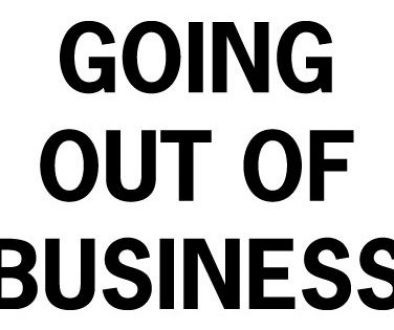A Little Background on Priority Queue
I started a business in just about the most unsound way possible. I made a bunch of errors. One year after my wife and I had our first child, I quit my comfortable, well-paying job, moved to a state where I knew no one, and tried selling to customers who had no interest in talking to me. For two straight years my business partners and I lost money. My business partners were my wife and her younger brother; we all lived together in our house to save money, and got by with as little as possible.
Promising Business Plan
Our business plan was very promising, as it was developed around my recent experience.
In 2001, I was working for Cisco Systems, designing and selling LAN and WAN upgrades, and evangelizing the fledgling technology of IP Telephony, as it was known then. My customers were everyone in Wyoming; there are about 500,000 people in the entire state. In addition to the great people I got to know, the engine that drives the economy in that state is the mining industry. I didn’t sell anything to the mining companies, but to the public sector. K-12 schools, higher education, counties, and cities were my customers; they all had good budgets.
The business plan was to move to a relatively small town in the southeast, and sell networking gear and services to public sector organizations and commercial businesses, just like I had done in Wyoming. We had some success here and there, enough to keep us limping along. I am always grateful to the customers that took a chance on doing business with us. Unfortunately, we were just not profitable.
Lessons Learned Early
The business plan was failing. There are many reasons for that, and we did recover, but some of the lessons learned in that first year are worth remembering.
- If you are making good money at a good company, have a family, yet are bored at work — stay bored! Sock the money away into savings for a few years to give you a good cushion to do something risky like start a business.
- If you are going to start a business, do it in one of the time-honored ways. One way is to work for a business just like you want to start, learn the ins and outs, then quit and start a competing company in either the same business or a new adjacency. Another way is to start the business on the side and grow it while continuing to work your day job. Keep getting that day job paycheck until you get fired for spending all your time on your successful new company.
- Start a business with the at least the three skills of sales, finance, and technical. This is one of the things we did right.
- Become very good at very few things. Have a very narrow focus, and become the best within your chosen market. It took us years to learn how to say no to things outside our area of focus. Once we learned that, everything started to go well.
- Get as much credit as fast as possible. For the first few years we bought all inventory on the $120k in credit cards that I was able to get just by accepting the free offers that kept getting sent to me while I worked for the big company. After a year or so we were able to get a line of credit using personal guarantees with a local pro-business bank.
- Payroll is the biggest expense. Only add people when you absolutely have to.
- It is easier to get young, green salespeople and train them. More experienced salespeople won’t work for a startup without some significant incentive, like bundles of cash or equity.
- Fund the company’s growth with debt, not equity. And don’t give equity to employees. Most people only care about a paycheck and commissions or bonuses. If you start granting equity to early employees it can spiral into a mess. Keep ownership closely held.
Unfortunately, after two years, we were stuck. There was not enough business to keep us going. When calling on public sector businesses, being able to sell to customers without them having to go out to bid is like money in the bank. We still were not on the state contract purchasing vehicle in Alabama. I had failed to plan for that, and it was killing us.
Make a Choice, Gather Information, Adjust Quickly
We were either going to have to shut the company down and get jobs, keep the company doing what it was doing and drive it into bankruptcy, or change our situation. We chose to move the business to Atlanta, and essentially restarted it, with one big difference.
When we moved the business to Atlanta we had value. A company’s value is in its employees, customer relationships, vendor relationships, and institutional memory. That memory should be codified into processes and procedures based on the many painful lessons learned the hard way. That is why franchises and MLM businesses can be so successful — there is already a proven methodology. We had a two year head start and had taken all the lessons we learned to heart.
Success!
We used that value in the new location. Within six years we had grown the company from two people to 40, while maintaining profitability and becoming debt-free. With the benefit of hindsight, it is easy to say that we should have started the business in January of 2002 in Atlanta instead of the small town. That may be the case…or it could be that the crucible of self-imposed hardship we endured for the first two years helped us to craft a business model that worked.
It is possible to start a business and succeed. People do it every day. Every time I see a new business opening I cheer for the entrepreneur that is taking a chance with his or her hard-earned savings, and pray that they either know or can develop a formula for success that works. I think about all the hard work they are going to have, the late nights, the development of strategy and tactics to succeed against their competition, and I do not envy them. Instead I drive home and play with my kids while it is still light outside and enjoy the family life I missed for those years while we were building the company from nothing into something.
Writing from Experience
I created Priority Queue because I keep thinking about business development, growth, and optimization, and needed a place to discuss and elaborate on these ideas.
As a US Navy submarine officer, I had many opportunities to learn and practice leadership, management, motivation, and engineering. The price for sloppy practices and system failure when operating a few hundred feet underwater in a steel tube powered by an operating nuclear plant while carrying 25,000 pounds of high explosive was high, so it was a good place to learn enduring lessons.
My Background
Founder and CTO of Adcap Network Systems, IT Solution Provider in Atlanta, Georgia.
- Started Adcap in 2002, grew to $52 million in revenue, sold in 2015 to Strategic Products and Services.
- 60 person organization
- Adcap was a Cisco Partner, an Information Technology Solution provider.
Company Recognition
- Elite Business in the category of Small Business “Best of the Best.” of The Best and Brightest Companies to Work For™ — 2014 and 2015
- Atlanta Journal Constitution Top Workplaces in 2014
- Inc 5000 America’s Fastest Growing Companies List in 2014
- Cisco Gold, Master, and Direct Partner
- Cisco 11 State South Area Partner of the Year 2013
- Cisco 11 State South Area Collaboration Partner of the Year 2014
- Cisco South Area Break Away Partner of the Year 2010


